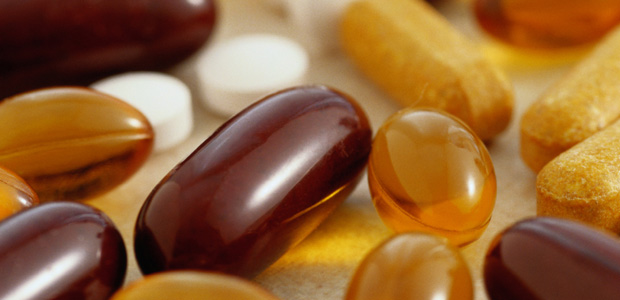Advertisement
Introduce Your Heart to Coenzyme Q10
From heart problems to Huntington’s disease, coenzyme Q10 (coQ10) could be the key nutrient you need to complete your prevention or recovery plan. This nutrient, which is essential to our body’s production of cellular energy, is synthesized in the body. Therefore it is not, by strict definition, a vitamin. However, its production may not keep … Continued

From heart problems to Huntington’s disease, coenzyme Q10 (coQ10) could be the key nutrient you need to complete your prevention or recovery plan.
This nutrient, which is essential to our body’s production of cellular energy, is synthesized in the body. Therefore it is not, by strict definition, a vitamin. However, its production may not keep up with the needs of tissues with high-energy requirements, like the heart. It has the highest concentration of coQ10, so it’s not surprising that the early studies on its potential therapeutic value focussed on heart disease.
Clinical applications in the cardiovascular area have included diastolic dysfunction, angina pectoris, hypertension, ventricular arrhythmia, mitral valve prolapse and drug induced cardiotoxicity. In most of these trials, coQ10 supplementation complemented standard medical therapy.
Adequate amounts of this coenzyme are necessary for the immune system to function properly. This may help explain the reported beneficial effects of supplementation in many conditions such as periodontal disease, cancer and AIDS.
CoQ10 has another important function in our body-as an antioxidant. For example, it helps protect low density lipoprotein from oxidation, thus reducing the risk of plaque formation, which can lead to cardiovascular disease. CoQ10 also interacts with other antioxidants, thus intensifying the overall effect.
Supplementation with this nutrient has also been found to be beneficial in diabetes and neurodegenerative disorders such as Huntington’s disease. Here, both its antioxidant functions and the coenzyme functions are likely to be involved.
The average dosage for healthy individuals taking coQ10 for general well being is between 15 and 30 mg per day. In some cases of heart disease, clinical response has been observed with initial daily doses as low as 30 mg. Generally, however, much higher dosages are required. The National Institute for Neurological Disease and Stroke is currently conducting a multicenter trial on coQ10 in Huntington’s disease, in which the daily dosage is 300 mg.
As this nutrient tends to be highly insoluble, it’s useful to look for a product in which the water-solubility has been enhanced, facilitating absorption into the blood stream. If it has not been made water soluble, you will have to take a higher dose.
There are three forms available: hard-shell capsules containing powder, softgel (soft gelatin) capsules containing an oil based suspension and chewable tablets.
CoQ10 generally comes in strengths varying from 10-100 mg and has been approved as a drug in Japan and Canada as well as a few other countries. In the U.S. it is sold as a dietary supplement.
When to Supplement with CoQ10
If the body is deficient in folate, vitamins C, B12, B6, pantothenic acid and trace elements, the synthesis of coQ10 could be significantly blocked. Decreased dietary intake, chronic malnutrition or chronic disease can all result in deficiencies. In one clinical study of hospitalized patients on total intravenous nutrition without vitamin support, blood levels of coQ10 plummeted 50 per cent in just one week.
Both animal and human studies indicate that aging is associated with a decline in coQ10 levels, along with environmental stressors and other lifestyle factors. One such stressor is chronic high-intensity exercise. When athletes have been studied, lower blood levels of coQ10 have been observed, most probably the result of the increased metabolic demands of chronically exercising muscles, resulting in an excess of free radicals.
Other environmental factors that may result in coQ10 deficiencies include cholesterol-lowering drugs. Statin-like drugs, such as Lovastatin, Simvastatin, Pravastatin, to mention a few, often used to treat patients with high cholesterol levels, are in this category. Normal cholesterol production, as well as endogenous pathways for coQ10 production, are both compromised by these drugs.
Perhaps the greatest coQ10 deficiencies appears in tissues that are metabolically active, such as those found in the heart, immune system, gingiva and an overactive thyroid gland. An overactive thyroid or even a pulsating heart, for that matter, requires additional coenzyme Q10 support.
Although coQ10 is found in relatively high concentrations in the liver, the kidney and the lung, the heart requires the highest levels because it is continually aerobic. Coenzyme Q10 support is essential for the healthy heart and critical for the failing one.




